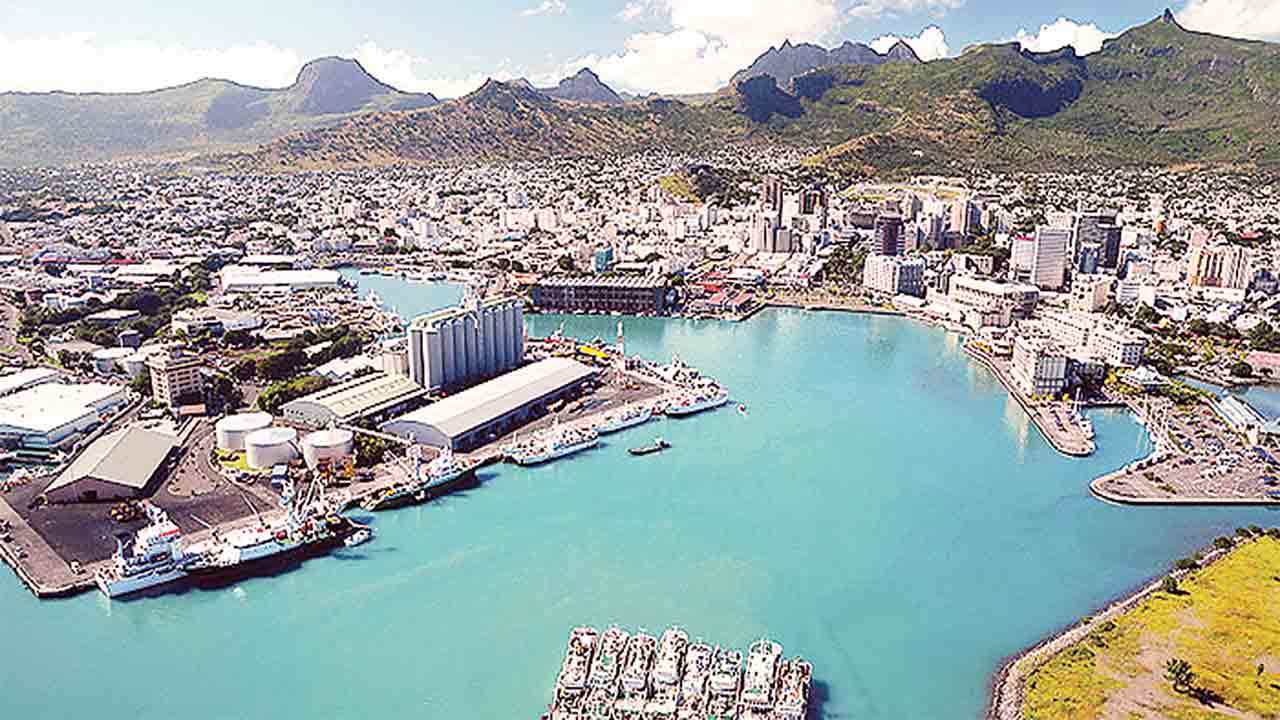
Since 2015, the Government has announced its vision to transform Mauritius into an ocean state by promoting the ocean economy as one of its main pillars of development. To achieve this vision, Government is looking for investment in seven fields.
Mauritius has a total maritime zone of 2.3 million square kilometres with an Exclusive Economic Zone of 1.96 million square kilometres and a continental shelf of 396,000 square kilometres co-managed with the Republic of Seychelles. Further submissions for an Extended Continental Shelf of 303,000 square kilometres on seabed and subsoil will be made to the Commission on the Limits of the Continental Shelf in respect of Rodrigues and Chagos Archipelago.
Seabed exploration for hydrocarbons and minerals
The spectacular bathymetric feature known as the Mascarene Plateau that extends from the granitic islands of Seychelles in the north until the main island of Mauritius further south is among the few marine geological features visible from space. The granitic nature of the Seychelles Islands and the discovery of a thick sedimentary sequence in the Seychelles plateau have attracted oil companies to prospect in the region. Recent geophysical surveys in the region of the Mascarene Plateau revealed that the continental crust along the Mascarene Plateau extends further southward to the Banks. The fiscal, regulatory and legal frameworks are currently being developed in view of launching expressions of interest for exploration and exploitation concessions by mid-2015.
Deep Ocean Water Applications (DOWA)
DOWA capitalizes on the coldness and nutrient rich properties of very deep sea water to develop a series of commercial activities that can be categorized as upstream and downstream. Upstream relate to the extraction and sale of deep see water as well as the production of green cooling or other energy conservation and production technologies. Downstream activities include premium products such as high-end aquaculture and seaweed culture, cosmetics and pharmaceuticals, agrochemicals, water bottling and thalassotherapy, among others. There are currently two upstream DOWA projects earmarked in the port area and near the airport respectively. The one in the port area will be implemented first with completion expected by July 2017 opening the way for implementation of downstream projects.
Marine Services
The ocean economy will serve as a major platform for playing out our efforts to make of Mauritius a high value-added services economy by harbouring a regional platform for marine finance, marine ICT, ship registration and marine biotechnology based on successful country models.
Seaport-related activities
Business opportunities identified include container trans-shipment, cruise travelling, port services and bunkering. Infrastructure works that are currently in progress in the port will accommodate larger container vessels. A cruise terminal and jetty will be constructed to support growth of cruise activities. Reclamation of land in the port will provide space for ship repair activities and storage tanks for bunkering. In addition, the liberalization of the bunkering sector is expected to considerable boost this activity.
Marine Renewable Energies
Marine renewable energies can amply contribute to our energy security and help in exceeding the expected target of 20.6% of our electricity production from renewable energy sources. Preliminary research on offshore wind and ocean-wave energies in the waters of Mauritius and Rodrigues has yielded encouraging results. It is also believed that our ocean contains a high potential for ocean current, ocean thermal energy conversion (OTEC), and ocean saline energies which in the long term may also contribute to our energy production.
Ocean Knowledge
Mauritius aims at becoming a centre of excellence for ocean knowledge within the next 15 years, both as a support industry and an industry in its own right. The University of Mauritius that has set up a Faculty of Ocean Sciences is currently looking to secure partnerships with international universities in view of developing the course contents of a variety of proposed ocean-related studies.
 Fishing, Seafood processing and Aquaculture
Fishing, Seafood processing and Aquaculture
The fisheries and seafood processing sector represents around 19% of total exports. Fishing activities include the island-based artisanal fisheries, Fish Aggregating Devices, the offshore demersal fishery of the banks of the Mascarene Plateau and the Chagos Archipelago, and the tuna fishery in the Western Indian Ocean (industrial fisheries). New fishing vessels can take advantage of the healthy tuna stock in the South West Indian Ocean as per noted by the Indian Ocean Tuna Commission. Opportunities also exist in the increasing transshipment activities at the ports for value-addition such as cutting, filleting, loining and packaging. In-lagoon aquaculture has also emerged recently and out of the 20 sites proclaimed, 15 sites are available for marine aquaculture. Farming of high-value and niche products such as seaweed, oyster and oyster pearl, crabs, sea-urchins and other shellfish are also being encouraged.
 J'aime
J'aime














